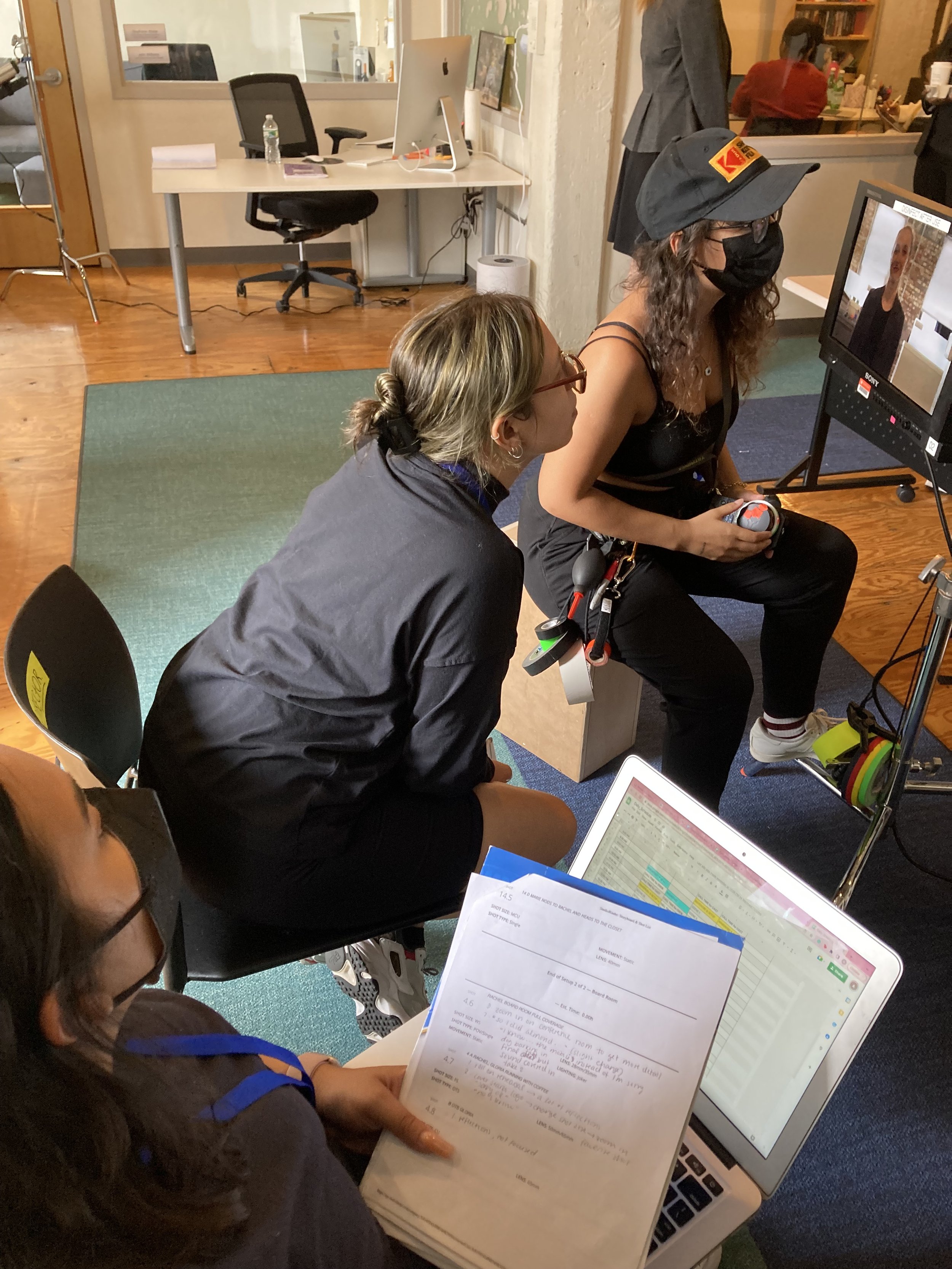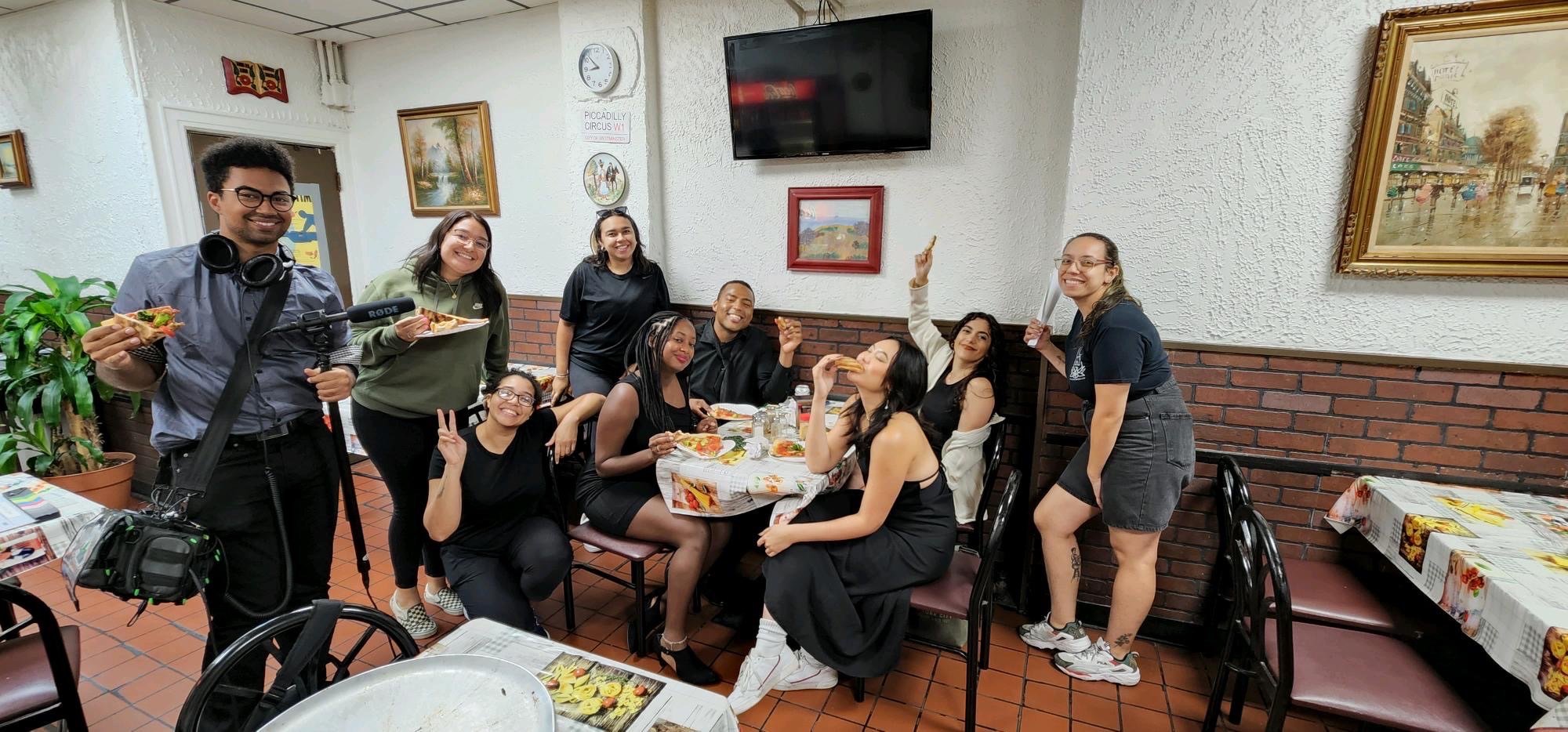5 Things I Learned As A First Time Director
If you have been following Mermaid for a while then I’m sure you’re already aware that we recently self-produced our first original comedy pilot. But for those who are new, allow me to elaborate; our comedy web series; Don’t Feed The Interns is a mock-umentary style episodic following four young film interns as they are pushed to their limits by a company that overworks them and undervalues them, until eventually they decide to quit and run their own film company. Besides, who runs a company better than interns? No one.
LESSON 1: TRUST YOUR INSTINCTS
After spending some time writing the pilot and plotting out the first season of the show, we got the crazy idea that we should just make it ourselves. Gabby and I have both had active roles in pre-production and post-production of our respective projects, however, this would be the first time we both did everything from the bottom up. We felt it was important to Mermaid for us to do this ourselves, and that Don’t Feed The Interns was the perfect content for this kind of experimentation. It was light, it was fun and it was ultimately low-stakes.
“I think I need to direct this”
We were fortunate enough to know enough people and friends of friends to fill out our crew, but when it came time to find a director, something in me came alive. I had never directed anything of this caliber before, and while I have a degree in film my main focus was screenwriting, I never even took a directing elective. But something told me that this is what I needed to do. Gabby was trusting enough and confident in me and my untapped potential, and once I was sure this is what I wanted to do, she agreed.
Planning to be a director on something that was becoming increasingly more important to us and Mermaid was nerve-wracking, but I never doubted that I could do it. I felt that if I trusted my intuition I’d be alright. I spent some time reading articles other people had written about their experience directing a web series or a comedy. However, what made me most comfortable and confident in my ability to do this was writing the script. I knew these characters inside and out, I created the world they lived in. If I closed my eyes I could see them in their office, I could hear their voices. I was sure that when the time came, the natural storyteller in me would take over.
“When I got there something in me clicked”
The first test of my abilities as a director was at our table read/rehearsal. I was a mess leading up to it, any time I had to so much as think of the production, I felt nauseous. What had I agreed to? This was getting increasingly more real with each passing day and then here was the table read. People would be there. They would expect me to know the answers to their questions and guide them in the right direction — literally. This anxiety was only added to by the fact that we still had not confirmed two of our main actors and we were only a week away from shooting (!!!).
The anxiety didn’t vanish, but hearing those four amazing actors read lines I wrote, seeing them all together and feeling as though my characters were alive right before me, something clicked. I no longer felt that the world was falling out from under my feet. Their questions were sometimes hard to answer, and I needed to take moments to truly visualize and find the words needed to convey my vision, but by the end of it I felt ready. The adrenaline rush kept me floating all the way into our first day of filming.
LESSON 2: THINGS WILL GO WRONG
This was the first thing I learned on set, which I’ve heard people say before, but its one of those things you don’t really know until you’re experiencing it. As a matter of fact, I learned this before we even got to set. About five things went wrong in the hours before we started filming. Starting with construction on the street that caused parking delays and noisy backgrounds in some scenes. Then we were locked out of the location and the person supposed to open the doors for us got delayed in traffic — due to the construction ironically. Followed by a mishap with a U-haul rental and TWO misplaced wallets that we referred to as “Wallet Gate”. And this was just the tip of the iceberg.
Through it all I had to remember one crucial thing, everyone was here not just because they had a job to do, but because they believed in this project and in us. The hiccups that started the day were not going to be what ended the day. No one was going to storm off set because it took me an hour instead of thirty minutes to get a U-haul and bring our rented props to set. And at the end of the day we wrapped a full hour early, which brings me to my next point;
LESSON 3: SCHEDULES ARE IMPORTANT BUT FLEXIBLE
We started almost every day thirty minutes late but ended early for two out of three of the days, and for one of them we ended right on time after adding five additional scenes in. We knew that some of our scenes would not need all the time we scheduled for them, however, we were cautious. There was a lot of material to cover in just three film days, and we didn’t want to underestimate just how much time we’d need. The first two days were scheduled to be 10 hours with a third day at 8 hours.
Day one began a little late, but we finished a full hour early, and everyone seemed content with it. It was our biggest day to orchestrate, we had three extras, all six cast members, an ambitious ten scenes, and at least two wardrobe changes.
Day two was completely different, we finished HOURS early with our anticipated scenes. After discussing it over with cast and crew, we all agreed to stay the full time and knock out as many scenes as we could for the next day, including wrapping two additional cast members and completing a company move. We ended the day with pizza and a birthday celebration and it honestly worked out for the best.
By day three, we only had our main actor on set, and about five scenes to shoot, most of which required little to no blocking at all. We were all feeling a bit tired from the two long days we’d had before, so the lax schedule really seemed to open everyone up. At this point we were just having fun, we came up a with a couple extra b-roll scenes to throw in and some easter eggs. It was a chill and goofy day that wrapped in under five hours, causing us to completely cancel lunch.
Allowing ourselves to be flexible and comfortable with our scheduling gave our cast and crew plenty of down time and it ultimately made the experience more enjoyable.
LESSON 4: WRITTEN WORDS ARE NOT SPOKEN WORDS
As I’m sure the above sentence would probably sound clunky to say aloud, and sometimes so does written dialogue. I’ve always been a writer, specifically of short stories and poetry. Those mediums require lengthy descriptions and elaborate figures of speech. Two things that don’t always translate to spoken speech. I found that the actors would often rephrase some of the more cumbersome lines to more common speech. It often was just a word or two, but I noticed the difference it made immediately.
From the start, I encouraged my actors to adapt the lines to their pattern of speech and to what felt right. All the actors had a really strong grasp on their characters’ voices so I was never concerned about them changing the content or the context in which the lines were said. I think having this level of understanding between us created an environment that allowed for improv and deeper exploration of character by our actors. This may not work for every project, but it was a comedy and we had the best talent we could’ve ever asked for, so it worked perfectly for us.
LESSON 5: HAVE FUN (AND MAKE SURE YOU’RE NOT THE ONLY ONE)
What a boring ass cliche, right? But it’s so true. The days go so fast and before you know it its all over. Sit down with the cast and crew, have lunch with them. Take silly photos and make jokes when construction noises ruin your sound for an hour straight. Laugh when a take goes horribly wrong, or when your first scene of the day needs ten takes to get perfect. It’s okay to improvise and change things up a bit.
Some of my favorite moments on set were the ones we never planned. And ultimately, the fun of the shoot is what makes me want to do it all again.
Lastly, the best thing we did for this project was put our full selves into it. This isn’t a lesson so much as an acknowledgment that our set was full of love and hard work and fun because everyone there wanted to be there. Everyone put their full effort in from start to finish and we made something really incredible out of it. And for that, I’m more grateful than anything else.



